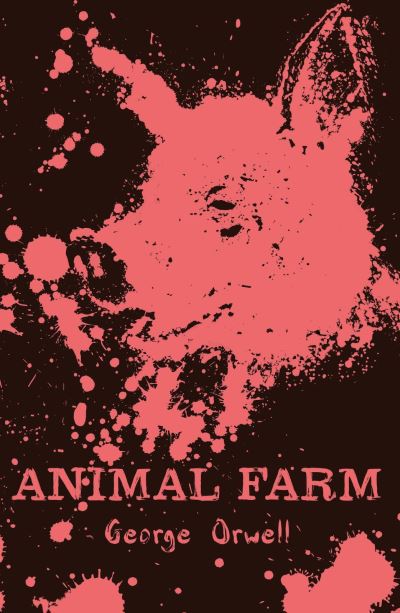Animal Farm Synopsis
This Scholastic Classics edition of George Orwell's classic
satire novel is perfect for students and Orwell enthusiasts
alike.
All animals are equal - but some are more equal than
others.
When the ill-treated animals of Manor Farm rebel against their
master Mr Jones and take over the farm, they start to believe in
a life of freedom and equality for all. But slowly, the egocentric
and ruthless Napoleon takes control and the animals are subjected
to force and violence from the corrupt elite - the pigs. As one
dictator is replaced with another, the idea of fairness and equality
for all becomes a distant memory.
Class, equality, power and control are some of the themes
that run throughout this novel.
- Studying this for GSCE? - check out Scholastic's
revision flashcards (9781407190198), study guide (9781407183435)
and guidebook for writing the best answers possible (9781407183992).
SCHOLASTIC "INK DOT" CLASSICS - Collect them all!
- A Christmas Carol
- Black Beauty
- Five Children and It
- Frankenstein
- Jane Eyre
- Macbeth
- Oliver Twist
- Romeo and Juliet
- Strange Case of Dr Jekyll and Mr Hyde
- Treasure Island
- What Katy Did
About This Edition
About George Orwell
Eric Arthur Blair (George Orwell) was born in 1903 in India, where his father worked for the Civil Service. The family moved to England in 1907 and in 1917 Orwell entered Eton, where he contributed regularly to the various college magazines. From 1922 to 1927 he served with the Indian Imperial Police in Burma, an experience that inspired his first novel, Burmese Days (1934). Several years of poverty followed. He lived in Paris for two years before returning to England, where he worked successively as a private tutor, schoolteacher and bookshop assistant, and contributed reviews and articles to a number of periodicals. Down and Out in Paris and London was published in 1933. In 1936 he was commissioned by Victor Gollancz to visit areas of mass unemployment in Lancashire and Yorkshire, and The Road to Wigan Pier (1937) is a powerful description of the poverty he saw there. At the end of 1936 Orwell went to Spain to fight for the Republicans and was wounded. Homage to Catalonia is his account of the civil war. He was admitted to a sanatorium in 1938 and from then on was never fully fit. He spent six months in Morocco and there wrote Coming Up for Air. During the Second World War he served in the Home Guard and worked for the BBC Eastern Service from 1941 to 1943. As literary editor of the Tribune he contributed a regular page of political and literary commentary, and he also wrote for the Observer and later for the Manchester Evening News. His unique political allegory, Animal Farm was published in 1945, and it was this novel, together with Nineteen Eighty-Four (1949), which brought him world-wide fame.
George Orwell died in London in January 1950. A few days before, Desmond MacCarthy had sent him a message of greeting in which he wrote: ‘You have made an indelible mark on English literature . . . you are among the few memorable writers of your generation.’
More About George Orwell
